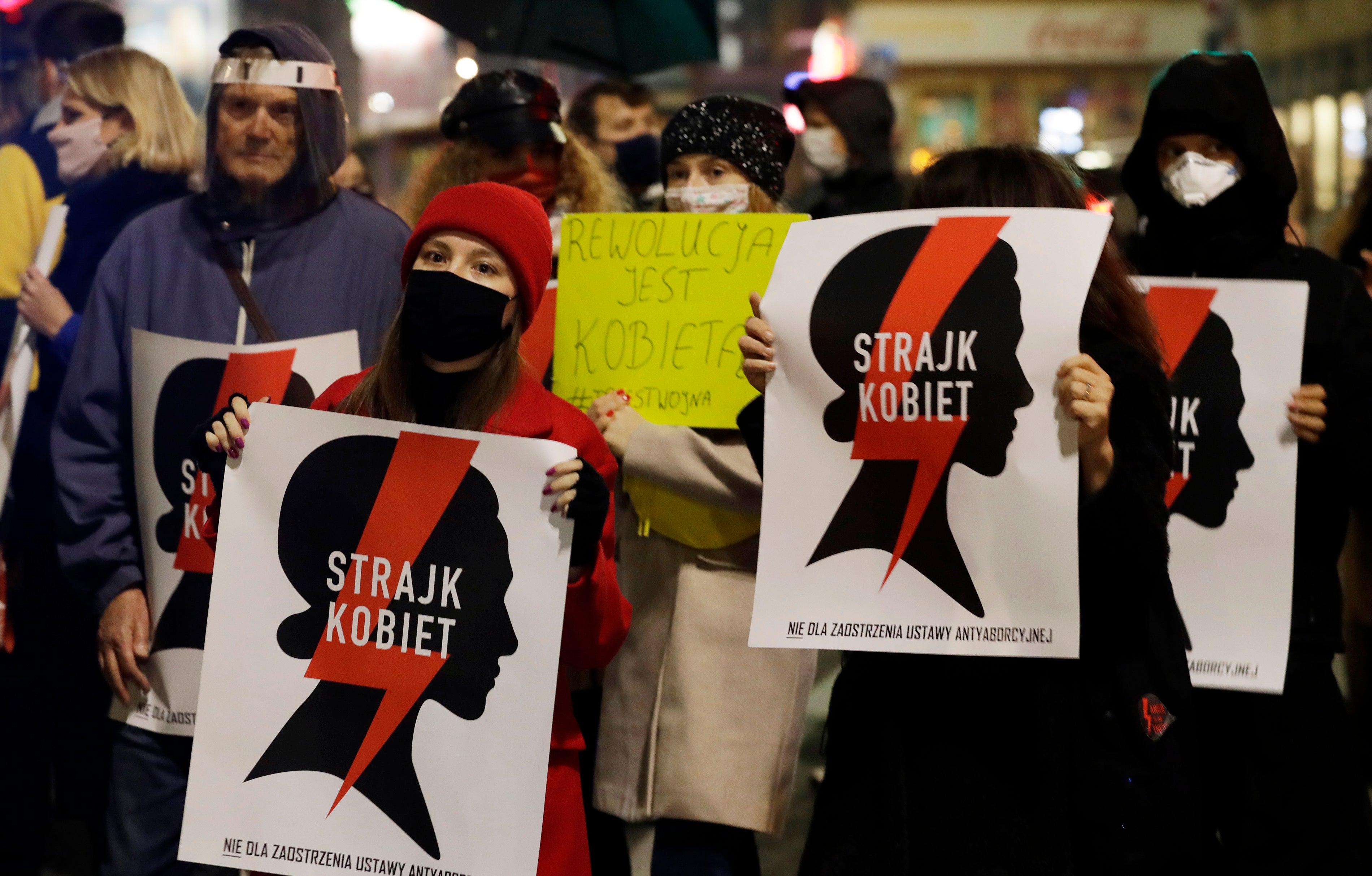Poland delays implementing abortion ruling amid protests
Poland's right-wing government is delaying the publication and implementation of a court ruling that tightens the abortion law

Your support helps us to tell the story
From reproductive rights to climate change to Big Tech, The Independent is on the ground when the story is developing. Whether it's investigating the financials of Elon Musk's pro-Trump PAC or producing our latest documentary, 'The A Word', which shines a light on the American women fighting for reproductive rights, we know how important it is to parse out the facts from the messaging.
At such a critical moment in US history, we need reporters on the ground. Your donation allows us to keep sending journalists to speak to both sides of the story.
The Independent is trusted by Americans across the entire political spectrum. And unlike many other quality news outlets, we choose not to lock Americans out of our reporting and analysis with paywalls. We believe quality journalism should be available to everyone, paid for by those who can afford it.
Your support makes all the difference.Poland’s right-wing government is delaying the publication and implementation of a high court ruling that tightens the abortion law and that has triggered almost two weeks of nationwide protests.
A government official said Tuesday that the leaders are taking time to debate the contested ruling and find a solution.
“There is a discussion going on, and it would be good to take some time for dialogue and for finding a new position in this situation that is difficult and stirs high emotions,” said Michal Dworczyk, the head of Prime Minister Mateusz Morawiecki s office.
The constitutional court ruled Oct. 22 that aborting fetuses with congenital defects violates the constitution, in effect further tightening what was already one of Europe's most restrictive abortion laws.
It would leave only abortions in cases of risk to the woman's life or crime — meaning rape or incest — allowed under Polish law.
The ruling was scheduled to be formally published on Monday. Unpublished, it has no legal power.
Massive daily anti-government protests have been held by hundreds of thousands of people ever since the ruling. The mostly young protesters have been disregarding the pandemic threat and a ban on public gatherings larger that five people intended to stop the spread of the coronavirus.
Morawiecki has appealed for talks with the protesters and opposition lawmakers to find a solution.
With Poland roiled by the attempt to further restrict abortion, surveys show a large drop in support for the ruling conservative Law ad Justice party and for its leader, deputy prime minister, Jaroslaw Kaczynski.
Meanwhile, President Andrzej Duda, who is aligned with the government, has proposed a new law that would allow abortion of fetuses with life-threatening defects but ban them for disorders such as Down syndrome. But this idea is seen as still too restrictive to many people and does not seem likely to win sufficient backing in parliament.
Women's rights activist are critical of Duda's proposal and Morawiecki's invitation for talks, and are planning more protests this week.
Experts on constitutional law say that delaying the publication of the ruling would be wrong because it would violate a legal provision that constitutional court rulings be published “without delay.”
“This is by far the worst option,” said Marcin Matczak, a law professor at Warsaw University. “It boils down to this approach that if someone does not like a ruling by the Constitutional Tribunal, he may not publish it."
The rulings are published by the government in the Journal of Laws.
Soon after Law and Justice won power in 2015 and took steps to control the constitutional court, the government delayed publication of some of the court's rulings, even by two years, and bowed only when pressured by the European Union leaders.